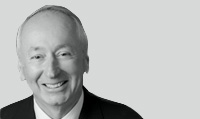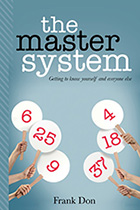When I was eleven years old, I and much of the world celebrated the triumphant entry of Fidel Castro and his revolutionaries into Havana, Cuba, on January 8th, 1959, to overthrow the dictatorship of Fulgencio Batista.
That summer I returned to the camp, Camp Passumpsic in Vermont, where I had spent the previous five summers and where I would spend the five subsequent summers. Two of my camp friends were Cubans, Ramon Grau and Sergio Leiseca.
That summer in 1959, both arrived late for the eight-week summer camp season.
Ramon was my age and my cabin mate. He was also the great nephew of Ramon Grau San Martin who had served as President of Cuba as the 26th [1930’s] and 32nd [1940’s] President. My friend Ramon’s father would subsequently be imprisoned for twenty-one years by the Castro Government for his anti-government activities which included his lead role in Operacion Pedro Pan that helped many Cuban children escape their homeland for the US.
As eleven-year olds, we didn’t speak much about politics, for we were there to enjoy camp and summertime activities.
Sergio, who was a year older, arrived with welts on his back from the whippings he had suffered at the hands of Castro’s men. Sergio told us that he and his family had been forced off their farmland in order for the Castro government to take over its control. It was hard for me to imagine what Sergio had suffered, especially since we were only little children.
What is going on now in Cuba with the people in the streets is especially poignant for me and for the many people of Cuban extraction, a large population of whom live in south Florida and hugely in the Miami-Dade area.
Ten years ago while I was living in California, I was advising in my role as a college consultant for high school students a student who was a senior at Carmel High School. He was of Cuban extraction and he wrote a strong and heartfelt college admission essay, which I share here:
“In my junior year for an oral history project, I interviewed my grandfather who had lived in Cuba until 1962. He told me how all the Cuban people were happy when Castro came to power and put an end to the Batista dictatorship. He told me how everyone in Cuba believed a new day was dawning, for the revolutionaries talked about being for the people. But the hope for change that so many Cuban people yearned for soon soured. My grandfather said that no one in Cuba expected things to become far worse than they had been under Batista. But they did. Castro’s support eroded rapidly. The liberties of the people were taken away and firing squads were instituted. My grandfather told me that he remembered vividly one particular case of a young man my age who actively opposed the Castro regime and got involved with a shootout with the police. The young man was injured in the shootout and was taken to the hospital where his wounds were patched up. Within a week, the young man went on trial and was condemned to die by firing squad. Badly injured, he could not walk by himself, was helped by medics but could not even stand in front of the pole to be executed. Instead, they sat him in a chair and shot him dead. Every night several people were brought to what became known as Execution Square and were shot to death. In telling his story, my grandfather looked me straight in the eye, tears in his eyes, and reminded me how sacred liberty and the freedoms we have in this country are. My grandfather left Cuba and like many Cuban exiles initially settled in the Miami area of Florida. In his telling of his life’s story, I felt a greater bond with my grandfather and came to appreciate what he had seen and lived through and why he is so strong in his beliefs of the rights and freedoms of the individual that he has found here in the United States. My time with my grandfather has made me proud of my Cuban heritage and has brought me closer to him and has given me a greater appreciation for the freedoms and liberties we have in this country, rights that I too often have taken for granted.”
I think what he wrote about taking our freedoms and liberties for granted rings true for all of us today.
When I was twenty years old, I was traveling through Europe that summer. It was 1968, a year of dramatic, even drastic, changes. Martin Luther King Jr. had been assassinated that Spring, the youth campaign of ‘Clean for Gene’ for the Presidential nomination of Senator Eugene McCarthy had helped to force Lyndon Johnson from seeking re-election, and while I was visiting my father in England, Senator Bobby Kennedy was assassinated.
During my European travels that summer, I went to Czechoslovakia, which was then experiencing the ‘Prague Spring’, also know as the ‘Experiment in Independent Socialism’ under the leadership of Alexander Dubcek. In early August of 1968, the Warsaw Pact Nations met in Bratislava and decided not to take strict action against Czechoslovakia, which was later followed on August 21st by the invasion of Czechoslovakia by the Soviet Union and other Warsaw Pact nations to suppress the reforms. I was in Czechoslovakia after the conference and before the invasion, and the feelings of liberty and freedoms and the David and Goliath victory of a small country against a major, major force were intoxicating. It made this twenty year-old realize and appreciate all the liberties and freedoms that I had as a citizen of the United States, liberties and freedoms I cherish, and which so many of us take for granted.
Often, it is the artists who first stand up against inequities and raise their voice for freedom and liberty.
Two examples of Cuban musicians who voice their desires, demands, for Cuban freedom and liberty are given below. The first with “Patria Y Vida” is being used presently as the rallying cry of the protesting Cubans:
https://www.youtube.com/watch?v=pP9Bto5lOEQ subtitles in English available
https://www.youtube.com/watch?v=3FaHzY_6LWY subtitles available in auto-translate
Liberties and freedoms, if taken too much for granted, can be gone with incremental shifts and subtle changes until they are all lost.

